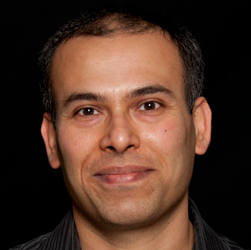
Reams have been written on jobs being replaced by algorithms and by robots running on algorithms. Much of the most impactful writing has come from economists — my two favorite ones are Joseph Stiglitz and Daron Acemoglu, or for a more lay person perspective read this NYTimes article that covers their work. Some of the writing has come from colleagues on the computing side of the equation, some of whom have taken a bullish view, and some a broadly bearish view.
In this post, I look at a microcosm of this bigger picture: in our rarefied world of university teaching and learning, which jobs can be replaced by algorithms? I categorize them as roles that are highly likely to be taken over in large measure (and in many cases, that progression has started), roles that are highly unlikely to be subsumed, and roles for which the jury is still out. Of course, none of these three categories is black-and-white; even for the ones where I surmise algorithms are unlikely to take over, they may reduce the amount of manual effort and thus reduce the demand.
The basic premise is easy to grasp and oft-told. Algorithms, and more broadly technology, are becoming smarter and are able to do an increasing number of work roles that we humans have traditionally done. This has displaced human labor; in the good-news part of the story, this has made humans adept at newer skills, and in the bad-news part, has led to unemployment and suffering. In today's world of big data, some of the most incisive discussion has focused on how big data (or one of its closely related cousins: machine learning, autonomous algorithms, or broadly, artificial intelligence) is upending professional roles. Is our ivory tower of academia that far removed from the hoi polloi? Or is it also subject to these forces and some parts of it will have to kneel before the inexorable force of big data?
Roles that are Highly Likely to be Reduced in Number
Let me clarify at the outset that for each of these roles, I do not anticipate they will disappear completely, but just that the number of people in these roles will decrease significantly.
- Research proposal formatting and proofreading. There was a time not too far back when there were armies of people responsible for the editorial aspects of research proposal writing and submission. No more.
- Research contracting. These are people who have the unenviable job of poring through research contracts to advise us of landmines in them. Some of these roles will become more valuable, while some that demand lower cognitive levels will get automated by my (and your) big data algorithms.
- Audio-visual production. We are all AV production engineers these days and turbocharged by the pandemic, arrayed with our hardware gizmos and big data algorithms that tell us what will make our recording look perfect. For really crucial productions, we will need the professionals, but not for a lot of the others.
- Space management. Which class needs to be scheduled in which classroom and when. Don't we teach scheduling algorithms in our undergraduate algorithm class?
- Mid-level administrators whose actual functions are mysterious to most. For my safety, I will say no more on this … grin.
Roles that are Highly Unlikely to be Replaced in Large Numbers
- Administrative assistants. This role has remained remarkably immune to automation, despite many attempts in academic and startup circles. Thank heavens for this. I need my assistant to not just schedule my meetings, but also to tell me how smart I am, especially before the big sponsor presentations.
- Research staff (includes faculty, students, professional researchers). This is the part of the world I live and breathe in. The amazing creativity that I see all around me is far beyond the capabilities of any big data system. This role calls upon the essence of human creativity. If this role were to fall to the forces, then we may all just give up and kneel before our robot overlords.
- Administrators who head units like departments and centers, Deans and Associate Deans. This is obvious. They have too much of a strategic role and deal with lots of knotty problems, many involving knotty humans. The same observation as with the above item applies here, the one about this defining an essential part of human creativity, though of a different form than the above item.
- Student advisors. These are the people who advise our students, act as essential guides in what is often a confusing journey through coursework, research work, and general life lessons.
- Background players. This catch-all includes in its folds all those who remain in the backdrop but make campus life the beautiful experience that most of us cherish. This includes the folks who tend to the campus flora, keep our classrooms functional, keep our laboratory equipment humming along, make sure that snowstorms do not shut down campus life, and many many others. AI can beat the best of us in chess, but it cannot set up a chess board, something all of us can do.
Roles for which Jury is Still Out
- Student admissions. These are all the people who weigh the various factors and act as the guards at the gates of our universities. Can an algorithm do a better job of weighing all these factors? Hopefully, the algorithm will be programmed to ignore the "legacy" factor and the "donor" factor.
- Website and marketing material development. Creating our spiffy Websites and brochures is an important activity, though with Web authoring and graphics tools galore, and mature ones at that, perhaps fewer will be needed.
- Some IT roles. IT staff form an invaluable backbone that keeps our computing equipment running at peak performance and keeps the software services running that we rely on day in andday out. But there are some roles within this this broad bucket that involve "routine" management that can be automated (and has been, through what is referred to by the buzzword "devops").
Characteristics
The characteristics of jobs that seem vulnerable are that they are more mundane, to use an overused broad term. Delving deeper, this may mean that the role is more prone to be automated by algorithms, but that seems like a circular definition. Let's try again. These are roles where patterns are static and easy to find, where patterns in the media (the written text, the spoken word, the video stream, …) are not that nuanced. The patterns that appear are not that context-dependent; in other words, lower in the Bloom's taxonomy of learning. Of course, this is a shifting landscape. What was considered outside the reach of algorithms yesterday is not any more today. Ask the paralegals, the copy editors, and, what would have been considered sacrilegious ground for algorithms to venture into till recently, ask the fashion designers and a few categories of software developers.
So what can we do to respond to the might of big data algorithms? At the risk of sounding trite, what we can do is to elevate our roles by looking for patterns that are more dynamic, more context-dependent, more subtle, and use these patterns to enable us to do our current roles better, even as we slowly and silently evolve these roles. Write in to say how you plan to evolve, or have been evolving, your role. It may be both exhilarating and exhausting in varied measures.
Saurabh Bagchi is a professor of Electrical and Computer Engineering and Computer Science at Purdue University, where he leads a university-wide center on resilience called CRISP. His research interests are in distributed systems and dependable computing, while he and his group have the most fun making and breaking large-scale usable software systems for the greater good.



Join the Discussion (0)
Become a Member or Sign In to Post a Comment